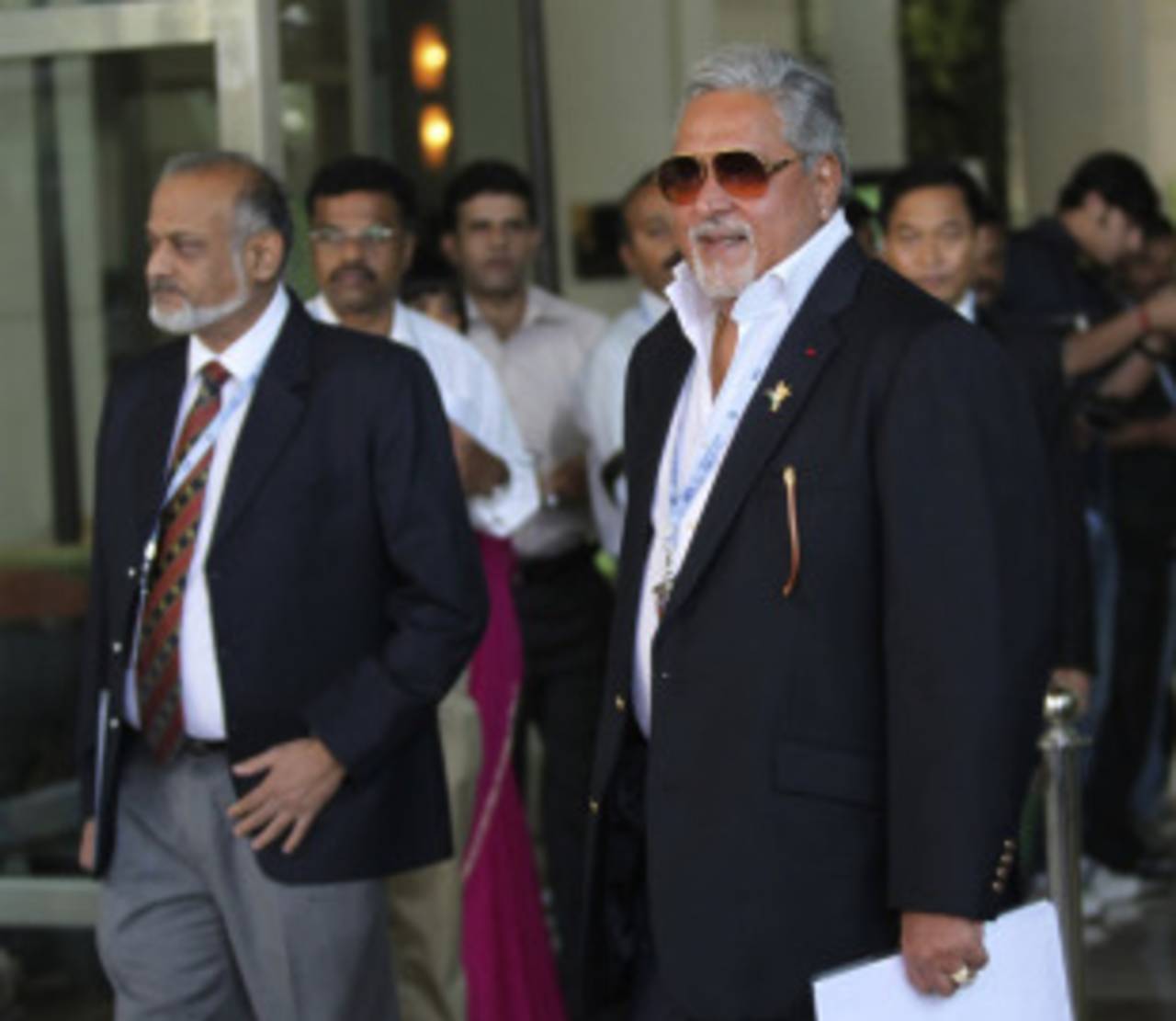The end of the IPL's 2011 auction has shifted the franchises' focus to filling up their roster of uncapped Indian players, who will form the base of any team. The process begins on Monday but a controversy has arisen over the rules under which those players are to be signed - and a general confusion over those rules hasn't helped matters.
The issue was raised a few minutes after Sunday's auction by Vijay Mallya, owner of the Royal Challengers Bangalore, who said he wondered whether the BCCI could protect the uncapped - read: young - players from being the subject of a bidding war and other forms of poaching.
"Now we look to sign uncapped players and try to complete our team," Mallya said. "But I urge all the franchises and the IPL governing council to exercise the utmost vigilance while signing uncapped players."
The IPL has, as Mallya noted, laid down "strict guidelines" for the signing of these players, whose value has increased because of the general dearth of domestic talent and the need to fill squad berths. First, it has laid strictures on how these players can be signed, through a three-way agreement involving player, franchise and the IPL, and with the explicit permission of the board. It is the player's decision, though, whether he wants to sign the contract and he is free to choose his team.
It has also clearly categorised these uncapped players into three types and set wage limits for each. Those players who made their debut in the last two years will be paid Rs 10 lakhs ($22,000); those in the field for two to five years would get Rs 20 lakhs and those with more than five years' experience Rs 30 lakhs.
Those two conditions together have raised fears among the franchises - which Mallya vocalised on Sunday - that, far from protecting them from inducements, the system leaves them open to bidding wars that could violate the salary cap. More so because some of these players (see sidebar) could, in open auction, command several times the maximum they can under the BCCI's rules. The only differentiator in a level playing field, it is feared, will be under-the-table deals.
Mallya gave the example of Ravindra Jadeja, who was banned from IPL's season 3 for attempting to negotiate a contract with a franchise on his own, and without the IPL's knowledge. He'd been picked by Rajasthan Royals before the IPL's first season when still an Under-19 player, and hence for a minimal sum, but sought better terms after success with the team.
The current situation could have been avoided, the franchises feel, had the rule not been changed last month. The original plan was for domestic players who had played 75% of their teams' matches in IPL 3 to be part of the open auction and a transparent bidding process. That rule was changed to the current one following a suggestion from Mumbai Indians.
The one ray of hope is the IPL's "catchment area" rule, which states that franchises have to sign four players from the neighbouring, or "catchment", areas. That would lessen the bidding war for coveted players but, as one franchise official said, there was "no clarity at all" on the definition and applicability of this rule.
On its part the IPL has said it will do everything possible to stop unfair dealings. "That [poaching] is a very difficult situation for us but we will be monitoring," Chirayu Amin, chairman of the league's governing council. "If we come to know anything was done underhand we will take stern action against them (player and franchise). I agree that it is a difficult situation but we will be very vigilant."
Nagraj Gollapudi is an assistant editor at Cricinfo
